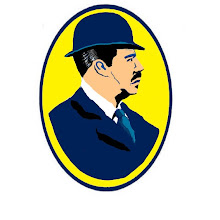A chegada ao ensino secundário nem
sempre nos parece fácil e rapidamente nos deparamos com novos e estimulantes
desafios.
No início do ano, nas primeiras aulas
de Inglês, falámos muito sobre projetos como o Comenius e outros divulgados a
nível europeu, mas apenas tínhamos a ideia de que era para conhecimento,
cultura geral e/ou consciência das oportunidades que poderíamos vir a ter. Mal
sabíamos nós o que estava para vir...
Foi
com grande agrado e entusiasmo que a turma reagiu ao anúncio da professora
Fernanda de que na nossa turma haveria um “Assistente Comenius”, vindo da
Hungria, durante 5 meses. Em outubro, preparámos uma apresentação e demos as
boas vindas a István Tóth.
When
interviewed by two students, István answered all their questions with great
detail about his stay in our country and which experiences he went through.
“The beginning was difficult, figuring out things like
how to get a photo-pass for the tram and buying a good bike. But I’ve had much
help so it has been relatively easy”, he
alleged. When asked about how is it in class, he said his best moments are the
ones “when I feel that I strike a chord
with students, when I feel that we connect and what I’m saying interests them”,
to which he added that “Those are
magical moments, and I’ve had quite a lot of them”, although also saying “I’ve had my share of the opposite ones, as
well, students talking, not paying attention – those are really challenging and
exhausting”.
According
to him, not only did he spend a great share of his time on school, but also
outside. When prompted about it, István shared some interesting experiences
with us. “In November, we went to Lagos
with a couple of friends, and on the way back we stopped at an amazing beach
near Aljezur. It was so beautiful, the ocean, the beach, the steep black rocks
that it completely overwhelmed me and I just started to run. I couldn’t help
it. I felt like a child.” Adding to this charming moment, he was shown the
Portuguese short film entitled História
trágica com final feliz, which left him “speechless.” The citizens have also surprised him, as after
talking to some foreigners living here, all agreed “the Portuguese are nothing like the Mediterranean stereotype. They are
very polite, calm people. They are also reserved, private, much more so, than
the Hungarian.” He also said that he did not face many difficulties
communicating, since “Portuguese people
commend a very good English in general, it is quite impressive”.
Into
matter of the project he and the school are involved in, he says he could not
have been better received, “My mentor
teachers, teacher Fernanda and Candida have been just great” and that the
students are “surprisingly similar to
Hungarian kids. […] Their English is
very good (well, generally, anyway) and at classes they keep surprising me with
bright ideas and creative solutions”, which, according to him, must be a “generational thing”, as net really
helps influence teenagers nowadays. István also thinks there is “always room for improvement”, and this
project nonetheless. However, “at the
moment I feel really happy about it”, he adds. Near the end of the
interview, István emphasized on how he as come to like Portugal a lot, and how
it keeps amazing him with “all its
beauty”, in his words. He complimented our country saying, “It is a unique place in the world, and I
am really happy that I had the chance to come here.”
On top of
that, he held that one day his grandchildren would have to see Portugal. “Maybe one day I’ll bring them here myself”,
he unwaveringly said. He is staying until the middle of April now “but that definitely is not the end of this
story!”
E não será mesmo um adeus.
Para nós, alunos, também consideramos
esta uma experiência inesquecível que nos deu a oportunidade de conhecer uma
outra realidade e uma outra forma (mais ou menos) diferente de aprender a
língua inglesa.
Guardaremos na memória por muitos anos
o que István nos ensinou e temos a certeza que esta experiência contribui para
a nossa formação como pessoas que, em breve,
serão os adultos desta sociedade.
David Brito e Gonçalo Pinho, 10º A
17 de Fevereiro de 2013










Sem comentários:
Enviar um comentário